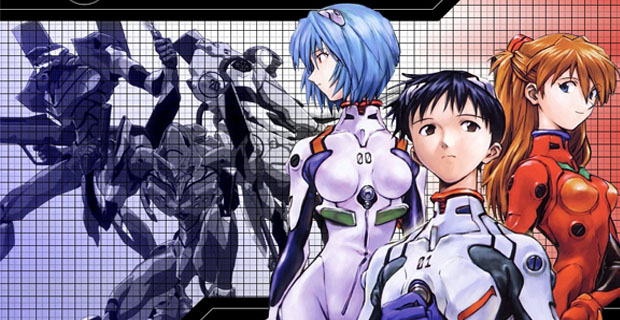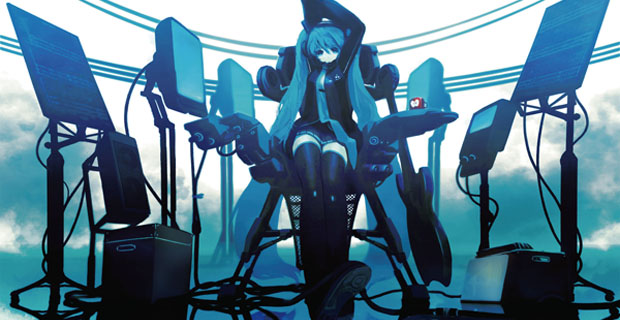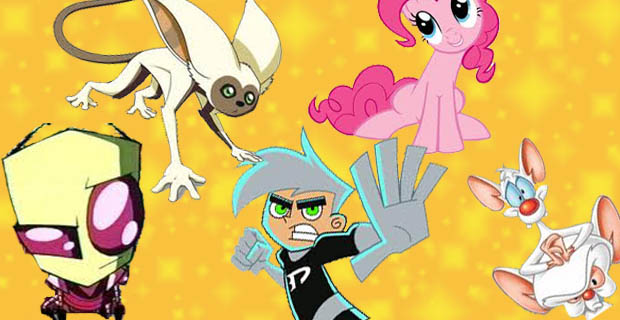Robots are the coolest thing to ever come out of the human
imagination. I don’t care if they will one day enslave humanity, they are still
pretty flipping sweet. But which robots are the sweetest of all robots? I
decided to take a trip down memory lane, revisiting my favorite robots from all
walks of media. This is not a comprehensive list. I’m just one person, and I
can only consume so much sci-fi media in the average day. However, the
following are my personal favorite machine men (and women). These are the
awesomest of automatons, picked for their ability to blend great sci-fi with
fascinating characterization.
Number 10: Nagato Yuki (The Melancholy of Haruhi Suzumiya)
 |
| Of course you're going to give a robot purple hair. No way that will be conspicuous. |
On the outside she looks like your typical otaku fantasy
material. An emotionless girl in the same line as Rei Ayanami, who is more
puppet than personality. However, that is part of Nagato’s appeal. She is a
convincing robot, simply because she does not understand human feelings. Her
motivation is that of a machine: fulfill her programming by preventing an
oblivious, reality altering teen from destroying the world. And yet, throughout
the series, hints are dropped that she desires more than this mundane task. She
reads voraciously, although expresses little interest in stories. She plays a mean
video game, although is apparently unconcerned about the outcome. Her true
self, the things that make her more than a machine, are hidden below the
surface. It’s up to the audience to spot them. In a way, it is the audience’s
observance that makes her human. She herself doesn’t notice her own feelings. It
takes the better part of the series for her to develop a self-awareness of the
fact that she is more than a machine, much to her own surprise.
Number 9: Wall-e (Wall-e)
From his droopy eyes to his love of musicals, Wall-e is one
of those creatures so cute that it should come with a warning for diabetics.
Everything he does is designed for maximum Awwwwww.
In fact, when you get right down to it, there isn’t a lot to the character.
He is a simple machine with simple wants and desires. But that is part of what
makes him effective.
 |
| Notice how the shape of his eyes make them look droopy and pathetic. That ups the pity ante. |
Wall-e is an interesting experiment with the uncanny valley.
He doesn’t look or move like a human. As such, the audience views him more as a
charming dog than a person. This allows him to have simple emotions and
motivations that still resonant with us. He isn’t as complex or intricate as a
human, but he doesn’t have to be. His simple, barebones view of the world comes
across as a sort of child-like wonder that the audience can sympathize with. He
invites compassion because of his simplicity. Our would-be electronic overlords
could learn a thing or two from him, and how less is more when it comes to
earning the trust of the meatbags.
Number 8: Marvin (Hitchhiker's Guide to the Galaxy)
We all need someone we can laugh at and mock, to feel better
about our own pathetic existence. Marvin satisfies our schadenfreude
beautifully. He is so miserable and useless, and yet he possesses one of the
greatest minds in the galaxy. So when bad stuff happens to him, we get to be
assholes and laugh at both the smart people in our lives and the technology we
are slaves to.
Marvin explores what it would mean to be vastly
intellectually superior to everyone around you. It would absolutely suck. He is
so much more intelligent than all the other life forms around him that he is
utterly alone and bored. It just goes to show that being smart doesn’t make you
happy. Quite the contrary. It makes you absolutely miserable. Marvin is an
exploration of what it would really mean to be an ultra-intelligent robot
trapped in a society of mind-numbed humans, all wrapped in Adams’ hilarious
satire.
Number 7: Octus (Sym-Bionic Titan)
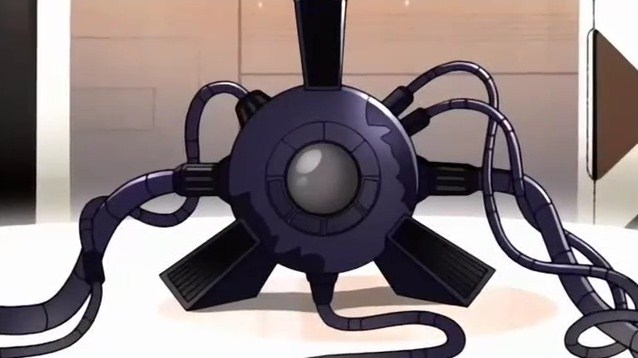 |
| You never hear him rant about his body image issues, despite the fact that he looks like a dismembered eye. |
Part of the reason Octus is included on this list is because
the show he comes from is so damn badass. It’s not so much the essence of the
character, but the way he is handled. He has this child-like wonder about even
simple things, like the way teenagers talk, but he is also capable of making
astute judgments about relationships and the social order. He is developed as a
character, becoming increasingly intelligent and sympathetic, without ever
losing his robot essence. In fact, his journey isn’t the cliché “become more
human.” He accepts the fact that he is a robot, and he is aware of the fact
that he is capable of emotions. And he can also morph into a giant
city-stomping mecha, so he has that going for him.
Number 6: BEEMO (Adventure Time)
It’s nice to know that even after the apocalypse, Japanese
hardware will still be functioning. At least, I think BEEMO’s accent is
Japanese. In any case, the little video game console that could is an adorable
addition to the Adventure Time cast. It is a quirky, androgynous little fella.
It is chipper, upbeat, and always ready for everyone’s favorite activity: video
games!
 |
| Who wants to play video games?! |
Part of BEEMO’s appeal is nostalgia. From its innocent world
view to its chunky interface, it harkens back to the gaming days of yore. This
helps the adult viewers feel a connection to it and to their childhood. BEEMO
isn’t just a machine; it is the living incarnation of those lazy days fighting
over who got to be player one on the NES.
Number 5: The Giant (The Iron Giant)
Look, I don’t want this to get personal, but if you never
watched The Iron Giant then we just
can’t be friends any more. Especially since it has one of the greatest robots
of all time. The Giant isn’t a very eloquent destroyer of worlds. He says very
little, and for the most part he is content to chill with his best friend, an
awkward little kid. The two hang out and have good, wholesome fun times. Until
the government has to ruin everything.
What is best about the Giant is how well it communicates one
of sci-fi’s most powerful themes: technology is amoral. It is only how we use
it that determines good or bad. It’s a common message in many sci-fi works, but
The Iron Giant manages to get the
message across with half the bullshit. It lays it down straight: just because
you have the weapon does not mean you pull the trigger. Because you are not agun.
Number 4: KOSMOS (Xenosaga)
KOSMOS is most likely the product of some Japanese man’s
confused sexuality and power fantasy. She is a robot. Shaped like a scantily
clad woman. Who can fire a planet destroying canon from her abdomen. She is
part sexy anime chic, part merciless death machine (full-time lover).
 |
| There's nothing even REMOTELY fanservicey about this design. (Also this artist is talented) |
Okay, all joking aside, KOSMOS is a fairly simple concept
taken to ridiculous extremes. She is hyperbolic in her power and blatant in her
fetish-fuel. But the world she inhabits, Xenosaga, takes itself so deadly serious
that those things don’t matter. The game’s heavy-handed narrative counteracts
the silliness of the concept, making KOSMOS something you end up accepting and
understanding.
Number 3: Gir (Invader Zim)
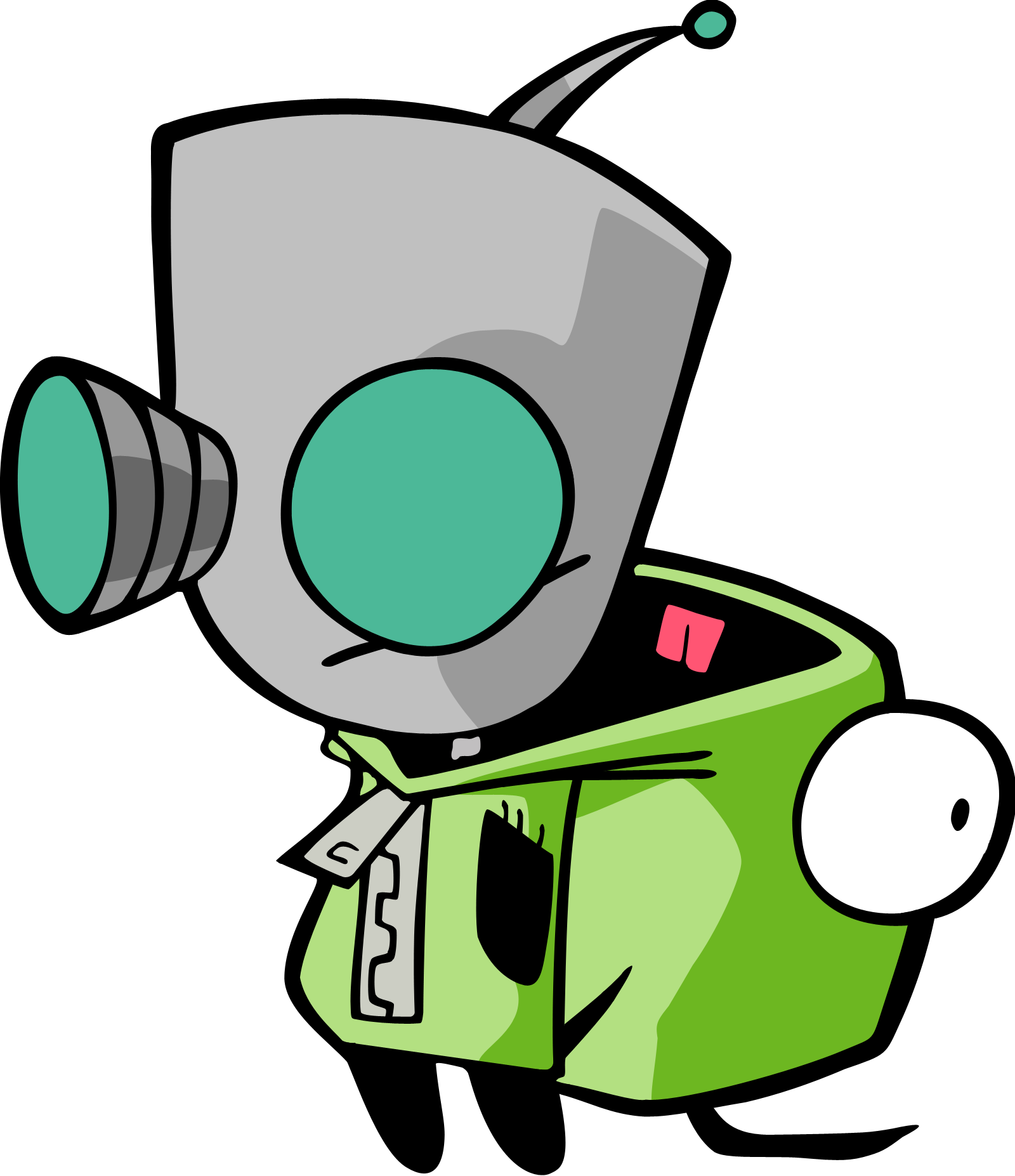
Indulge me in my innermost hipster for a moment while I rant
about how I liked Gir before he became a Hot Topic whore. Yes, he is overused,
and yes, half the people who wear those shirts have never seen Invader Zim.
That doesn’t make Gir any less awesome. He is living proof that computers are
only as smart as the people who make them, and so the only thing we have to
fear is our own stupidity.
Gir really is like the Earth dog he badly masquerades as. He
is stupid, oblivious to the damage he causes, but also with that cheerful
demeanor that makes it hard to blame him for anything, even when it is clearly
his fault. In a way, he fulfills my childhood dream of a talking dog. Sure, he
wasn’t designed to mimic dog behavior, but he’s stupid and he will eat whatever
shit you throw at him. That’s enough dog-like charm to win me over.
Number 2: GLaDOS (Portal)
If I was a robosexual lesbian, GLaDOS would be my lover of
choice. Yeah, she is psychotic and manipulative and cruel, but she’s also
incredibly funny, and isn’t that what really matters? It’s hard to stay mad at
her, even if she does repeatedly try to kill you. She’s just so clever with her
insults, it doesn’t matter if they are directed at you and designed to corrode
your self-esteem.

But seriously, GLaDOS is an extremely complex, multi-faceted
character. She’s like this black hole of passive aggressiveness. You know she
is a terrible person (machine), but discovering exactly what makes her that way
is such a fascinating experience that it makes up for everything else. It says
something that even after a whole game of trying to kill you in the first
Portal, players are glad to hear “Still Alive.” You don’t want her dead,
because she is such a rich and complex personality, it would be a shame for her
to cease to exist. It would, however, be hilarious for her to be put into a
potato.
Number 1: Bender (Futurama)
 |
| Aw, look at him being all loyal and shit. |
I remember when Futurama first premiered. I was nine years
old, way too young to appreciate the intricate social commentary, the superb
characterization, the dedication to a well-sculpted sci-fi world. All I knew
was that I loved Bender. He is one of my favorite character types: an
unrepentant asshole. My mom hated this show, and I was technically not allowed
to watch it. But I still persisted, begging and pleading and turning it on
anyways. Because to echo the words of Phillip J. Fry himself, I always wanted a
robot best friend.
Bender is a raging alcoholic, womanizer, gambler, and
convicted felon. He is the exact opposite of everything a robot is supposed to
be. That’s what makes him so awesome. Futurama is all about how the future and
technology won’t magically solve all our problems. It doesn’t matter if Bender
is made of metal, he still falls prey to the weakness of the flesh. It doesn’t
matter if he has a super computer for a brain, he still makes terrible
decisions due to his own ego. Human nature, or at least the nature of
self-interested sentient beings, will always prevail over technology and
reason. It is at once kind of disappointing and relieving. Bender shows us that
perfection is impossible, even through digital means. But at least we can
always bury our problems in alcohol. And really, isn’t that a lesson worth
learning?
Did I forget to list any of your favorite robots? Give them an honorable mention in the comments!
And if you liked this post, you might want to check out these articles:
